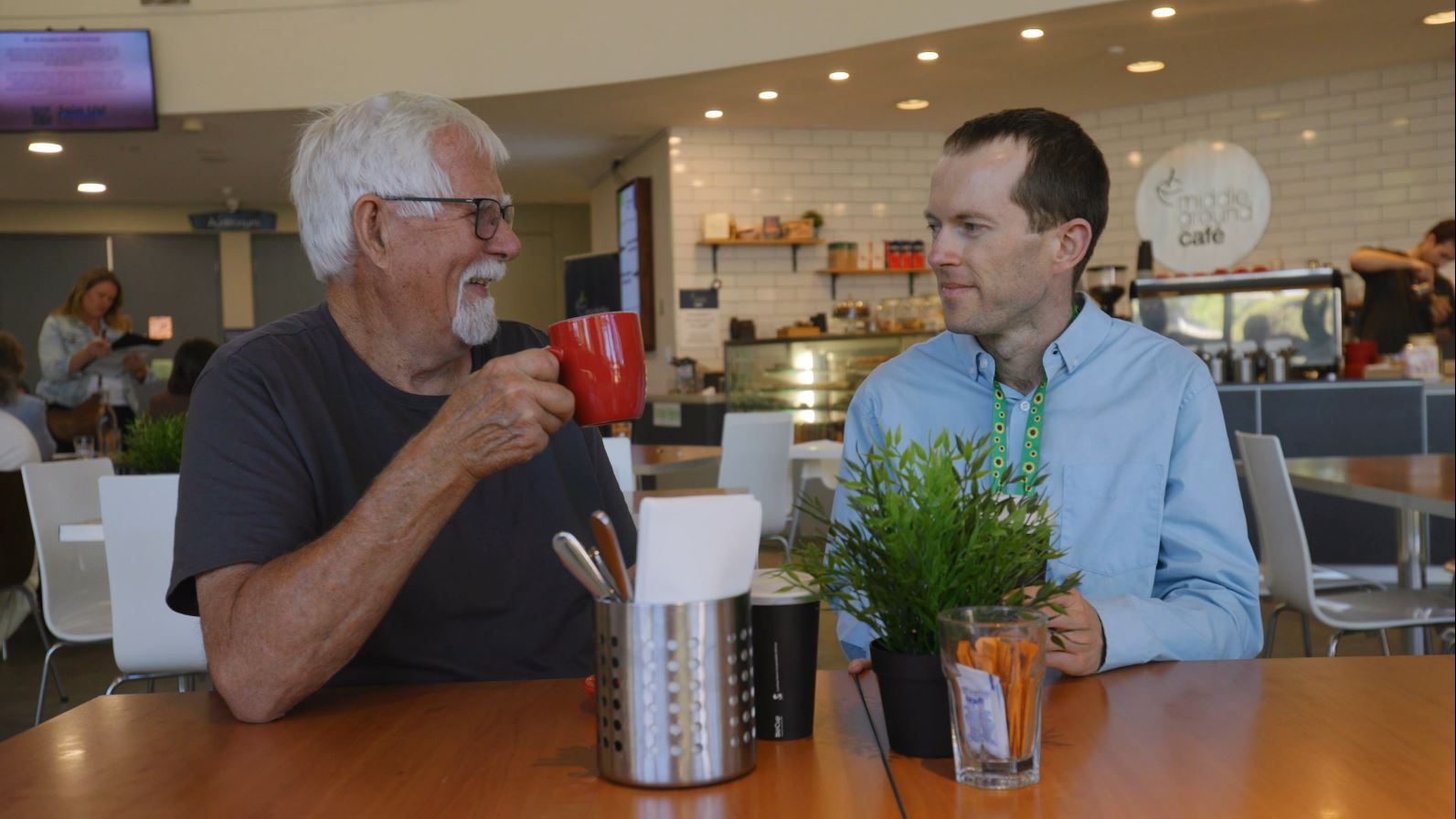Can time outdoors improve your eyesight and mental health?
Stories | January 17, 2022
According to the International Agency for the Prevention of Blindness (IAPB), by the year 2050 it is expected that nearly 50 per cent of the global population will be myopic (nearsighted).
According to the IAPB, myopia is due to a mismatch between the eyeball length and its optical power. This results in the lens of the eye focusing its intended image in front of the retina, rather than on it, causing blurred distance vision.
The condition is often diagnosed when a child is in their school-aged years with symptoms such as blurry vision, headaches and blinking excessively.
If left uncorrected, myopia commonly progresses and may lead to sight-threatening conditions including retinal detachment, Cataract, Glaucoma, and Myopic Macular Degeneration (a condition fast emerging as a leading cause of blindness in Asia and other parts of the world) (i).
Experts say that genetics do play a role in who develops myopia, with children who have parents with the condition more likely to develop it themselves.
But increasingly, environmental factors are being recognised as a major cause.
A 2012 study led by Australian National University’s Professor Ian Morgan found that 20 to 40 per cent of children in most Western countries have myopia, but that the figure was as high in 90 per cent in major cities across Asia.
Professor Morgan’s study also found that East Asian countries with high myopia rates are the same countries that produce consistently high educational performances. Children who spent hours in front of computer screens, smartphones and even reading books, at the expense of exposure to natural sunlight, are more prone to developing myopia.
Recent studies have shown that although there appears to be a correlation between screen time and levels of myopia, there is not necessarily an association (ii). Time spent outdoors appears to be key.
It’s been reported that when children spend sufficient time outdoors (more than two hours per day), their risk of developing myopia reduced and the rate of progression of myopia decreased (iii).
Although further studies need to be completed to access the association of myopia and time spent outdoors; there are numerous other benefits that can accompany spending time outside in green spaces such as parks and fields.
- Improving your short term memory and focus
- Reducing mental fatigue and inflammation
- Helping fight depression, anxiety, stress and other mental health issues
- Increasing creativity
- Improving physical health.
Time spent outside may decrease the risk of developing myopia and the rate of progression as well as improving the mental health of both adults and children. There is no cure for myopia, but atropine eye drops and multifocal contact lens or glasses are among the treatments available.
CBM Australia is working to prevent and treat avoidable vision loss with our Inclusive Eye Health programs.
We are also working to improve mental health in the poorest countries by working with individuals and strengthening their voices; working with families and communities to raise awareness and reduce stigma; and influencing governments.
(i). International Agency for the Prevention of Blindness: Vision Atlas, 2019. The impact of Myopia throughout the developing world. Available at http://atlas.iapb.org/vision-trends/myopia
(ii). Investigative Ophthalmology & Visual Science February 2019, Vol.60, M1-M19. Available at https://iovs.arvojournals.org/article.aspx?articleid=2727310
(iii). Wu PC, Tsai CL, Wu HL, Yang YH, Kuo HK. Outdoor activity during class recess reduces myopia onset and progression in school children. Ophthalmology. 2013;120:1080–5.
(iv). Healthy Parks, Healthy People, 2016. Nature and Mental Health Promotion – why spending time in nature if good for you. Available at https://www.sahealth.sa.gov.au/wps/wcm/connect/c53a850041a5a964af0fbfdb31a1ff3d/HPHP+MH+Discussion+Paper+Summary.pdf?MOD=AJPERES&CACHEID=ROOTWORKSPACE-c53a850041a5a964af0fbfdb31a1ff3d-mN5Nxe0
(v). Mind UK, 2018. Nature and mental health. Available at https://www.mind.org.uk/information-support/tips-for-everyday-living/nature-and-mental-health/#.XZq9zGeP6M8
https://www.cbm.org.au/stories/can-time-outdoors-improve-your-eye-sight-and-mental-health
Related Stories

Mrs Thelma leading the way for inclusive education
Education is a fundamental way in which people living in poor communities can break...

We Are Fearfully and Wonderfully Made: A Call for Churches to Embrace Neurodivergence
My name is Daniel Giles, and I’m proudly autistic....

Week 3 – Lent Series 2025
The image of God; an invitation into solidarity Olubunmi remains isolated in her home. Outside, stigma awaits her. For 27 years she has kept her...
